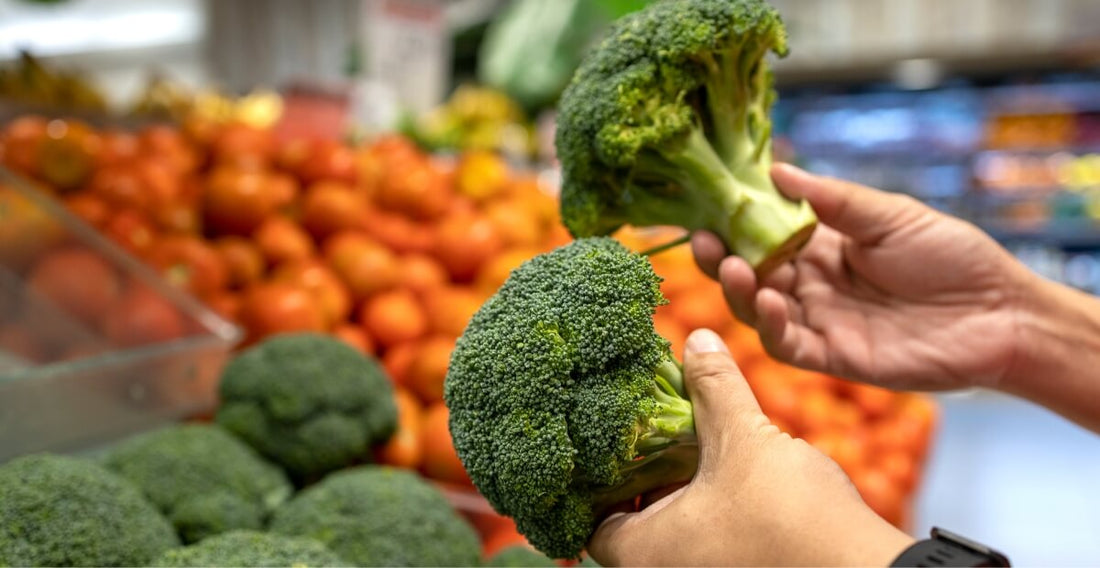
EPA Bans Pesticide Harmful to Fetuses
Share
Widely used herbicide for vegetables found to cause brain development and birth weight issues in babies.
This week the U.S. Environmental Protection Agency (EPA) implemented an emergency ban – the first of its kind in 40 years – of the use of a pesticide found to cause irreversible damage to fetuses when they're exposed in utero.
The herbicide, dimethyl tetrachloroterephthalate (aka DCPA or Dacthal), is widely used on crops including broccoli, brussel sprouts, cabbage, and onions, and has reportedly been found to cause low birth weight, brain development issues, decreased IQ and impaired motor skill development in babies.
Michal Freedhoff, assistant administrator for the EPA's Office of Chemical Safety and Pollution Prevention, issued this statement Tuesday: “DCPA is so dangerous that it needs to be removed from the market immediately."
The EPA evaluated DCPA in 2023 and found that the pesticide was linked to health risks for pregnant women and others, even when using personal protective equipment during exposure. Additionally, the EPA reported that pregnant women may have been exposed to the pesticide at unsafe levels of up to 20 times greater than the amount the agency estimates is safe for fetuses.
DCPA is now under review in a process that requires registered pesticides to be reevaluated every 15 years to ensure they cause no harmful effects on human health or the environment.
The Latest Research About Effects of Pesticides on Human Health
In July, a peer-reviewed study, Forever Pesticides: A Growing Source of PFAS Contamination in the Environment, published the first-ever analysis of the many ways that per- and polyfluoroalkyl substances (PFAS), known as “forever chemicals," are increasingly being added into U.S. pesticide products. Pesticides containing PFAS are used throughout the country on common foods including corn, wheat, kale, spinach, apples and strawberries. They are also widely used in people’s homes in flea treatments for pets and insect-killing sprays.
Studies of PFAS associate the chemicals with health problems including kidney and testicular cancer, liver and thyroid problems, reproductive problems, pregnancy-induced high blood pressure, low birthweight, and increased risk of birth defects. 34 U.S. states have introduced policies to protect people from exposure to harmful PFAS toxic chemicals as part of a Safer States national movement.
According to the Institute for Functional Medicine, global pesticide use grew an estimated 20% over the last decade and by 153% in low-income countries, specifically. The organization reports that pesticides have been associated with short- and long-term human health issues, including increased risk of cancer and potential disruption of the body’s metabolic functioning as well as the reproductive, immune, and nervous systems.
In 2018, Northern California resident Dewayne “Lee” Johnson won a landmark first court case against Monsanto (now Bayer), determining that Roundup weed killer and its active ingredient, glyphosate, causes non-Hodgkin lymphoma cancer. The court case inspired the 2022 film documentary, Into the Weeds.

How to Reduce Exposure to Pesticides
If you’re concerned about consuming fruits and vegetables that have been treated with pesticides there are several options available to reduce your exposure.
Consider purchasing USDA certified organic fruits and vegetables, which are required to meet stringent standards of farming to production. For example, certified organic produce must be grown in safe soil, without chemical fertilizers, growth hormones, GMOs, or synthetic pesticides. They must also be grown using natural and regenerative practices that promote ecological balance, maintain soil and water quality, and conserve biodiversity.
For crops that are treated with pesticides – for example, any that are not labeled as organic you’d find in a common produce section at a grocery store – the EPA also recommends washing, scrubbing, trimming and peeling fresh fruits and vegetables to reduce the amount of pesticides you consume. Running water also has a more abrasive effect than soaking the produce items.
Read more about Sustainability Matters by Young Eden, the planet-friendly children's fashion marketplace that exclusively sells organic and sustainable fashion for your baby, toddler and kid. Learn why organic cotton is best for your baby, and the planet too.
